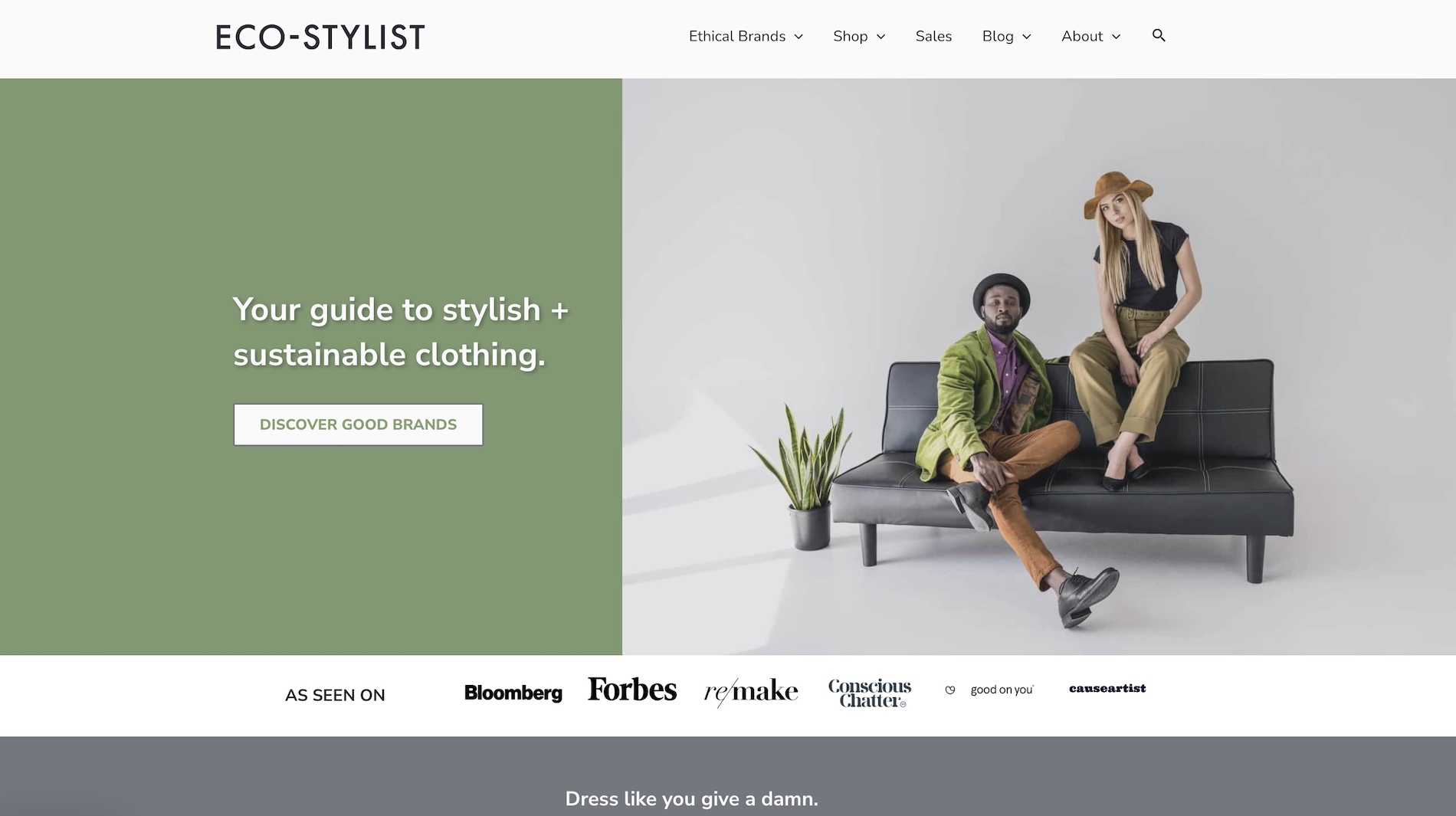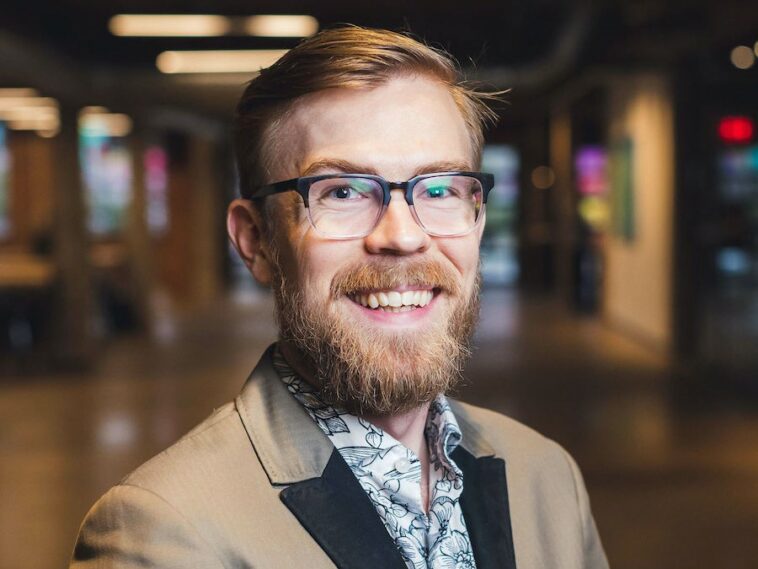This interview is brought to you by Startup Booster. Market your company with rapid, effective promotion across startup and business blogs.
Name: Garik Himebaugh
Company: Eco-Stylist

What are you building, and who benefits most from it?
Fashion is a dirty industry: 95% of workers don’t earn a living wage, 60% of clothes are made from fossil fuel-derived materials like polyester, and, thanks to fast fashion, 50% of new clothes end up in a landfill after less than a year. Millennials know this, which is why 73% of them will pay more for clothes that are ethically and sustainably made. However, they have told us again and again in interviews that they don’t know of a go-to source for sustainable clothing or one that they trust.
Enter Eco-Stylist, the trusted go-to resource for stylish and sustainable clothes. We have a directory of 100+ certified brands, a marketplace with 1,400+ items, and a blog with shopping guides and educational content.
I originally started Eco-Stylist to scratch my own itch: When shopping for clothes, I wanted to buy outfits that look good and were made by people earning living wages. I discovered brands that were doing this, and I wanted to make it easy for people to find and support those brands.
182 founders interviewed so far. Get interviewed in 10 minutes, via a simple form, for free.
When I got into the business planning stage, I learned I wasn’t alone—there was a sizable market for this. Now we help people across the U.S. dress like they give a damn.
What is one of your startup’s most impressive accomplishments?
One accomplishment I’m most proud of is reaching over 1 million people through our website. It is a medium through which we drive support for brands that are better for clothing makers and the planet, but it’s also an educational resource. By expanding our audience, we’ve been able to educate people about fast fashion, the problems in the fashion industry, and the brands leading the change. It’s a place from which we drive change and empower our users to know they can make a difference and a positive impact through their dollars and their shopping decisions.
What has been the biggest challenge so far, and how did you overcome it?
Our biggest challenge has been building everything from scratch as a bootstrapped startup. We started Eco-Stylist with nothing—no funding, no investment, and no money. Instead of starting it as a side hustle, I was all in from day one, forgoing my job prospects after graduate school to give the business my full attention and focus.
Despite the challenges, there are many benefits to starting this way. By starting lean, we’ve avoided wasting large amounts of money on things that just don’t work, and we’ve pivoted along the way as we learned what works and what doesn’t.
What tool or app could you not live without and why?
It sounds simple, but honestly, Google Calendar. It’s like they say: If it’s not on the calendar, it doesn’t exist.
Prior to starting this business, I wasn’t big on using calendars to manage my schedule, but now it’s a life-saver. It helps me stay organized, and it’s also an effective way to find work-life balance. If I need to make time for a yoga class, a climb, or a movie, I’ll do that. One thing I’m sure founders can relate to is endless work, but we’ve got to take care of ourselves if we’re going to be useful to our business.

What marketing strategies have worked for you?
We’ve had a lot of organic press coverage, including interviews on over 30 podcasts and features in Bloomberg and Forbes. Still, these features didn’t happen by accident. We made press part of our marketing strategy in the beginning, when we had nothing, and we pitched podcasts to feature us. The way we did this is by thinking about each individual podcast and writing a compelling story for them.
I asked questions such as what story I could add to this podcast and what value I could deliver to its audience, then I would pitch that story to the podcast host(s). We had a very high acceptance rate. This had a sort of a snowball effect where once we got a few podcasts under our belt, we could say, “Hey, we were featured on these awesome podcasts that you might know, and we think we can deliver value to your audience, too.”
Can you share any financial data about your startup?
We’ve had over 2,000 customers at Eco-Stylist, which we’re really proud of. We’re planning to rapidly grow this number in the next five years as it’s our mission to drive more money to brands that are better for people and the planet. We’re still totally bootstrapped with no investment, but since starting, we’ve won about $20,000 in grant money from competitions. (Reported on June 12, 2023.)
What has been your biggest business failure to date? What did you learn from it?
Our biggest failure to date has been spending money on things that don’t work. We invested $10,000 in email marketing and saw virtually no benefits—zero ROI. This is not to say email marketing doesn’t work. It does, but every business is different. The most effective marketing channels and strategies aren’t universal; they depend on your business.
When hiring a third party or an agency to do the work for you, it’s really important to align it with your strategy at that time. Ask whether you can afford this, whether the agency has an ROI guarantee, and what the impact on your business will be if this investment is a total failure. Then decide if you can live with the consequences and if it makes sense for you today to pursue this avenue. We learned a lot from this experience, and it has made us smarter.
What’s the best specific piece of advice you have for other entrepreneurs?
The best advice that’s worked for me is staying focused on growth and making time for it. Once you’re in business, you can easily spend all of your time managing the day-to-day stuff, checking email, and dealing with social media. However, that won’t get you very far. I think it’s super important to have one high-level growth goal and make sure you’re carving out time in your calendar to work on it every week or, even better, every day.
Want to be interviewed just like this? Fill out this simple form.



